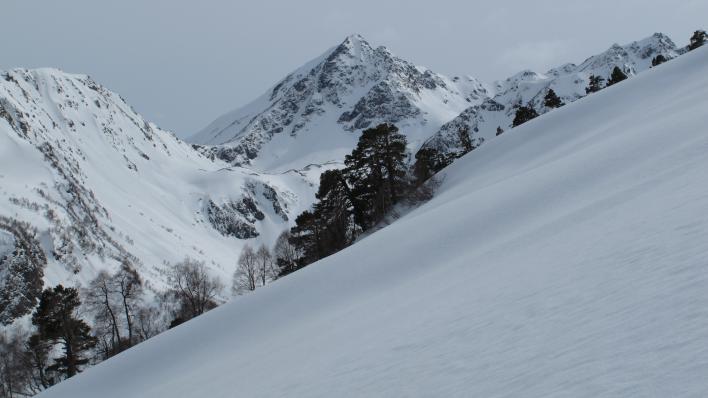
Economic Failures in Energy and Tourism Sector Plague the North Caucasus
Publication: Eurasia Daily Monitor Volume: 11 Issue: 18
By:

As the Russian government has been investing tens of billions of dollars in the construction of Olympic infrastructure in Sochi, a previously hailed grandiose project for developing tourism in the North Caucasus has been gradually fading away. To provide a more appropriate background for the Olympics, however, the CEO of the government-backed company Northern Caucasus Resorts, Sergei Vereshchagin, went on a spree of interviews in January to talk about the enviable prospects for tourism in the North Caucasus. At the same time, some of the company’s recent steps show that it is increasingly less a commercial enterprise and more a propaganda machine. In 2013, Northern Caucasus Resorts established the Expert Council of Youth, which has the objective of “forming an attractive image of the North Caucasus” (https://www.ncrc.ru/ru/news/radio-golos-rossii-intervyu-generalnogo-direktora-oao-kurorty-severnogo-kavkaza-sergeya-0).
In 2010, then Russian president Dmitry Medvedev announced the establishment of the North Caucasus Federal District, which included all the North Caucasian republics with the exception of Adygea. The Stavropol region, which has an ethnic-Russian majority population, was also included in the new federal district. Moscow appointed the governor of the Siberian region of Krasnoyarsk, Alexander Khloponin, as its envoy to the region. Soon after his appointment, Khloponin unveiled a plan to boost the North Caucasian economy. The primary focus of the plan was to develop tourism in the region, provide employment to locals, improve the economy and remove the incentives for the young people to join the insurgency.
The program proposed building world-class ski resorts in all the North Caucasian republics with the exception of Chechnya and Ingushetia, which were included in the program later. The initial plan envisaged the investment of tens of billions of dollars in the region. But those grandiose prospects have given way to an increasingly less ambitious project that tries to provide tax breaks to private investors and proceed with building infrastructure in the existing tourist-friendly spots. Given Russia’s current economic woes, the grand plans for tourism in the North Caucasus are unlikely to materialize any time soon.
Last December, Northern Caucasus Resorts opened its first venue—the Arkhyz resort in Karachaevo-Cherkessia. The company claimed that the resort received 15,000 visitors within two weeks after opening, although it was unclear whether they were all first-time visitors or included returning visitors (https://www.ncrc.ru/ru/news/aleksandr-hloponin-i-aleksey-ulyukaev-posetili-vtrk-arhyz). In addition, Karachaevo-Cherkessia enjoyed some popularity among skiers long before the government program, so the company’s contribution does not seem to be that crucial.
Safety concerns have been one of the main obstacles to any significant private investment in the North Caucasian tourism infrastructure. Northern Caucasus Resort CEO Vereshchagin believes investment should come before the situation calms down. In an interview with the newspaper Kommersant, Vereshchagin cited the examples of Austria, France and Mexico, where local populations were opposed to tourism but became reconciled to it once they recognized how it would benefit them. Vereshchagin optimistically forecast that 2.5 million to 3 million tourists would visit the North Caucasus annually, and that this would require some 70,000–80,000 service personnel (https://www.kommersant.ru/doc/2389917).
Vereshchagin may indeed be not far off when he states that better living conditions and prospects could dampen civilian support for the insurgents. However, the history of the conflict in the North Caucasus indicates that this approach is unlikely to work without political underpinnings. The inherent contradiction of Moscow’s plans for developing tourism in the North Caucasus is that it envisages the implementation of a neo-colonial model, with ethnic Russians in charge of the project while ethnic North Caucasians have secondary roles. According to this scenario, Moscow is hoping to control the region through economic means and ensure it does not aspire to secession from Russia. Yet, Moscow’s plan does not have a place for the North Caucasians as active subjects of transition. Moreover, circumstantial evidence shows that the Russian government would be wary of the North Caucasians themselves taking the tourism project under control. Last February, Akhmed Bilalov, a Dagestani, was removed as CEO of the Northern Caucasus Resorts company, and forced to flee the country (https://tvrain.ru/articles/magomed_bilalov_ob_olimpijskoj_strojke_brate_ahmede_i_begstve_v_london_proizoshedshee_s_nami_otnoshenija_k_tramplinam_ne_imeet_putina_obmanuli-347820/).
Meanwhile the economic situation in the North Caucasus continues to deteriorate. On January 22, the authoritative Russian newspaper Nezavisimaya Gazeta published an article titled “The Energy Sector of the North Caucasus Is Headed Into an Abyss.” The North Caucasian republics have accumulated a whopping backlog of payments for electricity—some $700 million by the end of 2013. The underdevelopment of electricity networks results in losses of 50 percent of the energy in some areas, according to experts. The backlog of payments started to increase rapidly after Moscow removed an ethnic Karachay, Magomed Kaitov, as head of the Interregional Distribution Network of the Northern Caucasus—the North Caucasus electricity distribution grid also known as MRSK Severnogo Kavkaza—in 2011 (https://www.ng.ru/regions/2014-01-22/6_kavkaz.html). Kaitov was removed by Igor Sechin, the notorious power broker who was then Russia’s first deputy prime minister, for alleged unscrupulous behavior. Kaitov was accused of privately controlling both the transportation and the retail sales of electricity (https://www.rbcdaily.ru/industry/562949982076189).
Last December, Kaitov was accused of having stolen more than $100 million in funds from MRSK Severnogo Kavkaza and placed under arrest. The arrest of the “Energy King of the North Caucasus,” as some observers have called Kaitov, resulted in another round of rumors about the imminent cleansing of the political and economic structures in the Northwest Caucasus (https://www.vz.ru/politics/2013/12/16/664230.html).
By trying to combine tight control of the economy of the North Caucasus with the region’s development, Moscow is bound to fail, as the deplorable state of the region’s energy sector and the failure of its tourism project have shown. The Russian leadership persistently denies the need for political reforms that would give power to the local population, even when similar steps are taken elsewhere in the Russian Federation. This makes the relationship between the federal center and the North Caucasus look even more like a variant of old-fashioned colonial rule.




